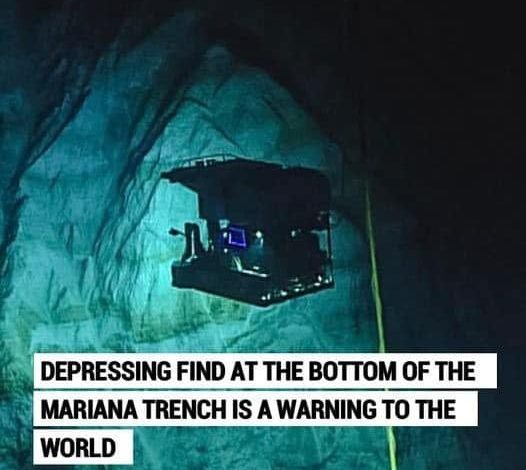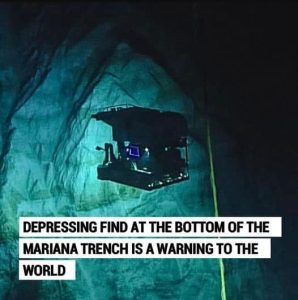Depressing find at the bottom of the Mariana Trench is a warning to the world

The Mariana Trench, long considered an unspoiled and remote part of our planet, has recently been exposed to an unsettling reality: plastic waste has infiltrated even its deepest, most isolated depths. This discovery, marked by the presence of a plastic bag found at the trench’s bottom, serves as a stark reminder of the far-reaching and devastating consequences of our global plastic consumption and improper disposal practices. What was once thought to be an untouched abyss is now a tragic symbol of the pervasive environmental crisis caused by human activities.
Despite its seemingly desolate and inhospitable nature, the Mariana Trench is far from lifeless. It is, in fact, home to a surprising array of marine life that thrives in its extreme conditions, including unique species of coral, jellyfish, and various types of octopuses. These resilient organisms have adapted to survive in one of the most extreme environments on Earth, but now they face a growing threat from plastic pollution. Recent studies have brought to light the alarming extent of this issue, showing that the problem is much more widespread than previously thought.
One such study, which analyzed the Deep-Sea Debris Database, found that an astonishing 17% of images in the database depicted marine creatures interacting with plastic debris. These interactions range from the entanglement of animals in plastic waste to the ingestion of small plastic particles, which can be harmful or even deadly. The evidence gathered from these findings paints a grim picture of the immediate dangers posed by plastic pollution in the world’s oceans, including the deep-sea ecosystems that many people often overlook.
The presence of plastic in the Mariana Trench highlights a critical global issue: plastic waste is everywhere, even in the most remote and seemingly unreachable parts of our planet. As the world continues to grapple with the growing environmental impact of plastic, it is essential for us to take meaningful action to reduce plastic consumption, improve waste management, and adopt sustainable alternatives. The survival of marine life, from the deepest depths to the surface, depends on our collective efforts to address the plastic pollution crisis before it’s too late.
By raising awareness of the issue and promoting responsible behavior, we can help mitigate the impact of plastic pollution on our oceans and protect the delicate ecosystems that depend on them. It’s clear that the fight against plastic pollution is far from over, and the Mariana Trench serves as a stark reminder that no part of our planet is immune from its devastating effects. The time to act is now—before the damage becomes irreversible.




